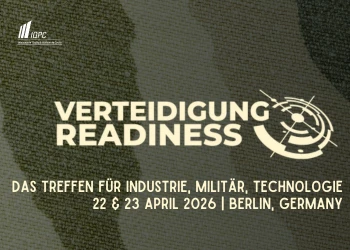Why did Turkey Choose the S-400?
Turkey has chosen the S-400 over the Patriot. The S-400 is considered to be one of the most advanced systems in the world but it is incompatible with NATO systems. What does this mean for Turkey?
Add bookmarkWhy didn't Turkey Choose the Patriot?
For years, Patriot air and missile defence systems have proved their mettle as a defence against enemy threats. They are combat-proven and, hence, have found a market for themselves worldwide. NATO countries use Patriot as it is easier than upgrading their own defence systems to be interoperable, therefore providing greater defensive coverage. However, Turkey, a NATO member is yet to possess the Patriot system.
It is not that Turkey does not host Patriot systems in their territory, but those systems do not belong to Turkey. Due to the growing missile threats presented by the Syria crisis, NATO members – including Germany, Spain, the Netherlands and the United States – have hosted Patriot systems in Turkey to counter missile threats.
"Germany and the US have recently removed their Patriot systems from Turkey rather than renewing the agreement"
But Germany and the US have recently removed their Patriot systems from Turkey rather than renewing the agreement – much to the annoyance of Ankara. These geo-strategic changes were taking place before Turkey’s attempted ‘coup’ as Turkish decision-makers were openly contemplating an option to buy Chinese air and missile defence systems and ignoring outcry from NATO partners.
Patriot - Source: Shutterstock
Removal of existing Patriots has also thought to have been attributed in part to Turkey’s anti-Kurdish sentiments. Turkey’s President Recep Erdogan did the negotiations no favours when he accused the US of being complicit in the 2016 coup attempt.
RELATED: Hypersonic missiles: What are they and can they be stopped?
Despite these glitches, the US offered to sell the Patriot systems to Turkey. Turkey is already in plans to buy the Russian S-400 air and missile defence system. If Turkey had decided to choose the Patriot, it would be largely guided by the geopolitical needs of Ankara, much like its decision to join an alliance with European countries. The Patriot and the S-400 fall into different categories of air and missile defence system, so ultimately Turkey could choose both to manage a varied threat environment.
That said, Raytheon – as the makers of Patriot and under the auspices of its President, Wes Kremer –has specifically stated that purchase of the system would solely be a ‘government to government’ decision in which the company would have no role to play. But Turkey, having already operated the Patriots in its territory, has working knowledge of the system and how it can be integrated into its air defence shield.
Does Turkey need the S-400?
For the S-400s, Turkey would need separate related systems that would support the functioning of S-400s on a stand-alone basis. It must be noted that Turkey is likely to be seeking missile defence systems that can integrate with its own indigenous interceptors rather than having to purchase a new interceptor from a foreign source. Turkey may therefore look for a more ‘open’ system that is already compatible.
RELATED: Global Air Defence Requirements Map 2018
In fact, Lockheed Martin has been developing the Medium Extended Air Defence System (MEADS) and claims Turkey has a “fairly developed industrial infrastructure” which could open the door to integration with indigenous Turkish interceptors.
Selling Patriots to Turkey would still remain a priority for the US as this should minimise the odds of Turkey looking towards procurement of Russian systems. Concern about this possibility is said to be so grave that the US Ambassador and Acting Assistant Secretary of State for Political Affairs, Tina Kaidanow, claimed earlier this year that the US was in talks with Turkey to “give the Turks an understanding of what we can do with the Patriot.”
Whether the US would allow indigenous interceptors to be fitted into Patriots, or allow Turkey to embark on joint production, remains speculative. Kaidanow further claimed that the US wishes to ensure the systems acquired by its allies “remain supportive of the strategic relationship between us and our allies, and in the case of Turkey, that [means] Patriots.”
Washington is concerned that the decision to buy the S-400s could eventually result in Ankara supporting Moscow’s policies and strategic decisions, whether in Syria, Ukraine or elsewhere. This is a justified concern. Already the Turkish Prime Minister Binali Yildrim has said pointedly (in March 2018): “The US is still our ally despite its mistake in the region of Syria.” Such statements will not be viewed in a positive light by the Trump administration.
"If Turkey is to choose the Patriot, it would be largely guided by the geopolitical needs of Ankara"
But the US must also realise that Turkey does not consider Patriot an alternative to the S-400, as was clarified by Yildrim. So even if Turkey does buy Patriot, there would be no guarantee they would not also buy S-400s or other Russian inventory. Many in the US have recommended an embargo on transferring the F-35 Joint Strike Fighter (JSF).
But it is not clear if such a stance would be enough to coerce Turkey to stop purchasing the S-400s, as Turkey could instead seek procurement of Russian fighters to refurnish its fleet. Others have also recommended hard sanctions to be imposed on Turkey in the event of a Patriot contract, but how far these sanctions would work remains difficult to know.
RELATED: Turkey’s S-400 deal may tip the Nato-Russia scale
Selling the Patriot to Turkey would not be an easy task. The concerns the US have must be addressed adequately by the State Department before it can take any decision. Likewise, Turkey’s own strategic goals and interests need to be understood in granular detail by US and her allies before it can expect a deal to be struck.
Did you enjoy this article?
Be sure to check out this guide on the SU-57






















